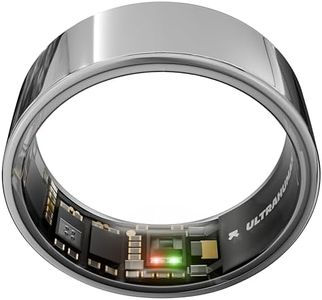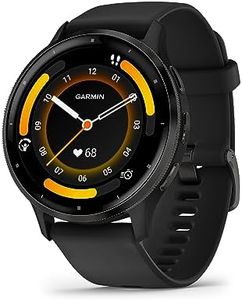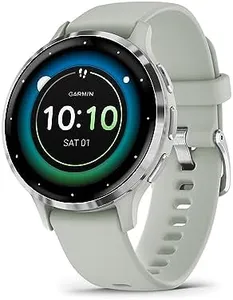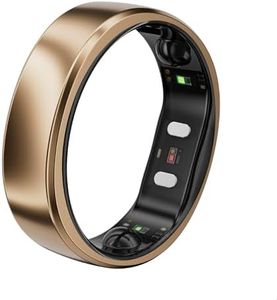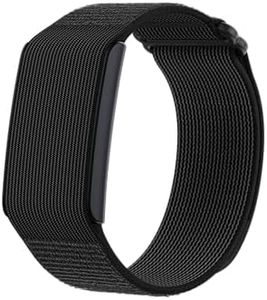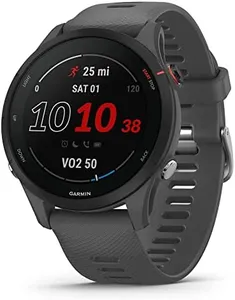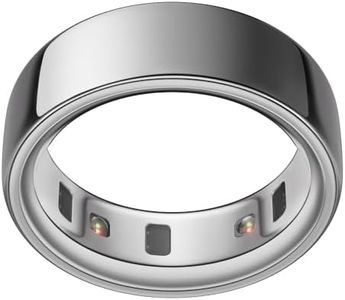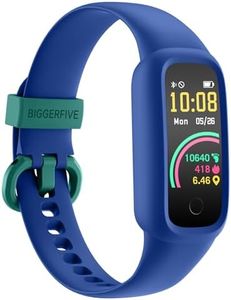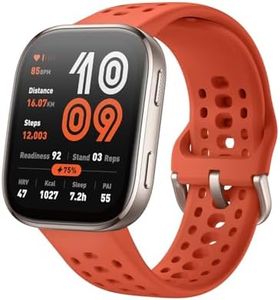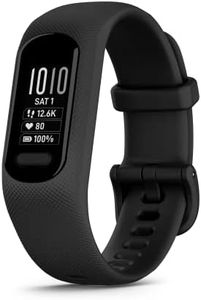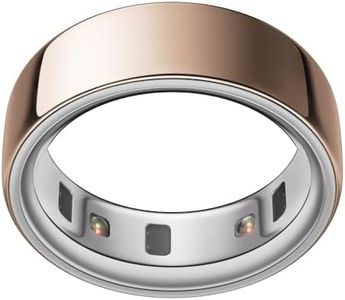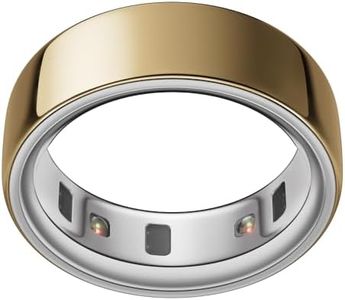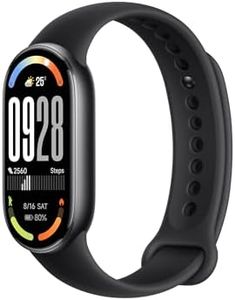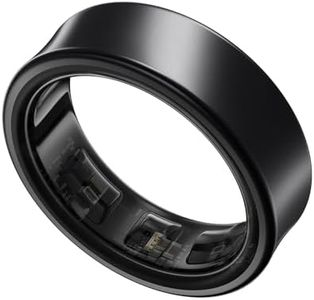We Use CookiesWe use cookies to enhance the security, performance,
functionality and for analytical and promotional activities. By continuing to browse this site you
are agreeing to our privacy policy
10 Best Sleep Trackers
From leading brands and best sellers available on the web.By clicking on a link to a third party's website, log data is shared with that third party.
Buying Guide for the Best Sleep Trackers
Choosing a sleep tracker is all about finding a device that not only tracks your sleep accurately but also fits comfortably into your lifestyle. Before you pick one, think about how much information you really want, what would be convenient for you to wear or use during the night, and how you would prefer to access your sleep reports. Take your daily routine, sleeping habits, and even your comfort with technology into account. The easiest tracker to use will fit seamlessly into your night and give you insights that make sense for your health and goals.Tracking MethodSleep trackers gather information using different approaches, such as wearable devices (like wristbands or rings), mattress sensors, or even smartwatches and phone apps. This spec is important because the method affects comfort and accuracy. Wearables are portable and versatile but may be less comfortable for sensitive sleepers. Mattress-based trackers are hands-off but only work in one spot and might miss movement if you share your bed. App-based options often use your phone's sensors and are easiest to try, but may be less reliable. To pick the right type, think about whether you can comfortably wear something to bed or if you'd rather have a non-wearable solution, plus how much setup you’re willing to do.
Sleep Metrics TrackedSleep trackers can measure different details, from just total sleep time to advanced metrics like sleep stages (light, deep, REM), interruptions, heart rate, breathing rate, temperature, and even blood oxygen. This is important because more advanced metrics can give deeper insights but might not be necessary for everyone. You can divide devices into basic ones (that only show how long you slept), intermediate ones (that add sleep stages and interrupt counts), and advanced ones (that report heart and breathing metrics). Choose what’s right for you by considering if you need just a general sense of your sleep quality, or if you have health reasons or a strong interest in tracking specific physiological changes overnight.
Data AccuracyAccuracy is about how close the tracker’s data matches what your body is really doing as you sleep, and it varies widely among products. Accurate data is key if you’re hoping to make changes to your sleep or identify issues like disturbances or sleep disorders. Devices using more sensors (motion, heart rate, etc.) tend to be more accurate. To judge accuracy, look for trackers that use multiple measurements, and check for brands that mention validation against medical-grade equipment. If you mainly want sleep awareness, top-level accuracy may be less crucial, but for medical or health goals, higher accuracy is worth seeking.
Comfort and Form FactorThis factor is all about how pleasant or unobtrusive the device is during sleep. A tracker that’s uncomfortable or disruptive can actually harm your sleep instead of helping. Some people find wristbands or smartwatches fine, while others prefer slim rings or devices that tuck under the mattress. Comfort often comes down to your sleeping position, sensitivity to wearing items, and preferences. If you’re not used to wearing jewelry or gadgets to bed, a non-wearable option might be best. Consider a trial period if available, to get a feel for what suits you at night.
Battery Life and ChargingBattery life matters because a tracker that needs frequent charging could be a hassle, especially if you forget before bedtime. Some trackers last only a night or two, while others can go a week or more. Long battery life means less maintenance, but may mean fewer features or a bulkier size. If you already charge other devices nightly, you may be fine with shorter battery life; otherwise, opt for longer-lasting models if you want to set and forget it for days.
Compatibility and App FeaturesMost sleep trackers work with an associated smartphone app that gives you your reports and insights. Compatibility is important to make sure the tracker works with your actual phone (iOS, Android) and syncs smoothly. App features vary: some focus on simple graphs, others offer coaching, smart alarms, or data export. If you enjoy deep dives into your data or want insights and recommendations, look for robust, user-friendly app experiences. If you want the simplest results, a basic app or even built-in device display might be all you need.
Smart Features (Alarms, Integrations)Some sleep trackers offer bonus features like vibrating alarms, smart wake-up (designed to wake you during a light sleep phase), or integration with other health apps and smart home gadgets. These are important if you want more than just data. For example, a smart alarm can help you wake up feeling more refreshed. If you use other fitness or health apps, or plan to use your data with your doctor, integration features might be essential. For those who want ‘set it and forget it’ simplicity, extra features may not be needed, but can add motivation or convenience for some users.
